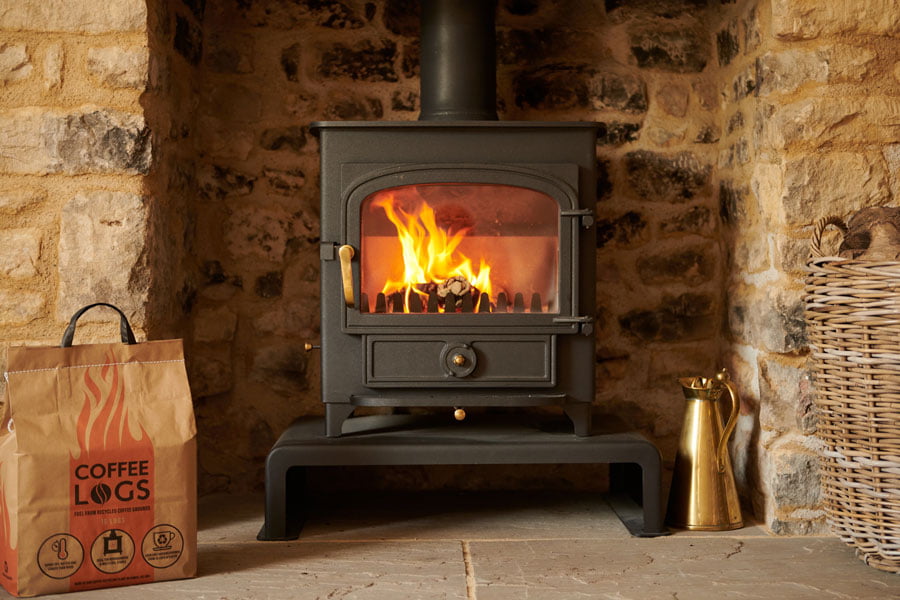With the UK’s coffee culture rocketing in recent years, have you ever wondered what happens to all of our coffee waste? We took a visit to bio-bean and met with Sales Account Executive, Xavier Freeman who told us all about how bio-bean work with waste management companies around the UK, collecting ground coffee to convert it into sustainable clean fuels for home as well as industrial use (coffee logs for stoves; biomass pellets for industrial).

Xavier talks to us about his role at bio-bean, and how the business is making a difference to the environment.
What is your role at bio-bean?
I am responsible for the sale of our bio-bean Coffee Logs.
What does an average day in your role entail? (in a nutshell)
It begins with a large cup of coffee (of course!) and I then make sure that our current stockists are happy with our logs by picking up the phone or firing a few emails out. I also spend a large part of my time contacting new retailers in order to increase our number of stockists and to spread Coffee Logs across England – and now Europe!
With the UK’s coffee culture rocketing in recent years, just how much waste from ground coffee do we create?
It’s quite tricky to find exact numbers regarding the amount of coffee imported into the UK as it arrives under many forms; instant, green bean, roasted beans, ground… We have however estimated the number of cups of coffee drank in England to circa 90 million every single day! This adds up to about 500K tons of waste coffee ground being thrown in English landfill sites, every year. It’s, therefore, bio-bean’s goal to reduce that figure as much as possible.
You work with waste management companies to collect the used coffee grounds from around the UK, but what happens to it when it reaches your factory in Cambridgeshire?
Indeed, and every waste management company has their own way to collect and deliver those grounds. We therefore receive them under various forms; from palettes of 5L pots to 27 ton lorries and even in biscuit tins from our local supporters! We aggregate all that coffee and put it through a decontaminating & drying process in order to get clean and dry coffee grounds, ready to be transformed into logs, pellets, oils and bio-chemicals.
In what ways are you helping the environment?
We have put together a Life Cycle Analysis which tracks the entire journey of the waste coffee grounds from the moment they’re put into a bin until they’re burnt in a stove. Thanks to that document, we’ve proven that we reduce 80% of the CO2 emissions by recycling your coffee grounds with us instead of sending them to landfill. This amounts to about 6 tons of CO2 saved every day!
What do you think is one of the most interesting facts about bio-bean, that people may not know?
A large part of what bio-bean does happens in our lab where we’re studying all the uses and benefits of the large amount of oil, flavours and fragrances found in waste coffee grounds. We’ve even powered a London bus for an entire year with coffee bio-diesel!
What is bio-bean’s proudest achievement this year?
We have installed a large biomass boiler and biomass dryer which enables us to dry all our waste coffee grounds with… waste coffee grounds!
What’s your favourite hot drink? (we won’t judge you if it’s not coffee based!)
A seriously strong cup of coffee with a splash of milk and a guilty spoon of sugar. If you don’t shake, you haven’t had enough!
If you’ve enjoyed reading this blog, you can find out more about bio-bean here, or to see bio-bean coffee recycling in action watch this.



